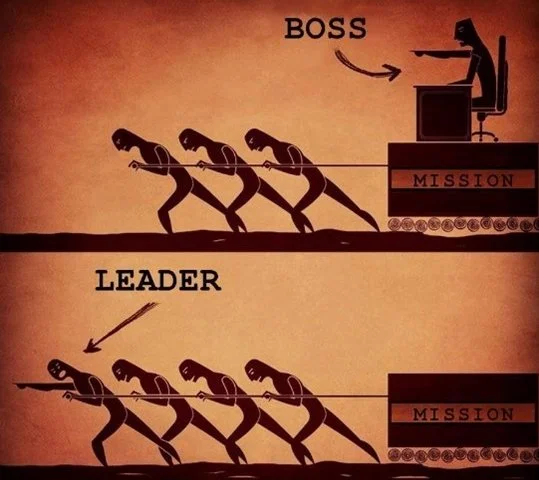Leadership Excellence: A Profile on Nissreen Chams
Leaders play a crucial role in setting the tone for the team. At Driven By… Co. we are focused on building more motivated and engaged teams, so we set out to find Leaders who are setting a great example.
We interviewed Nissreen Chams, the AVP of Business Development at Stratejm, located in Mississauga, ON. Organizations, especially critical infrastructure companies, are constantly under threat from cyber espionage, insider threats and other external threats, and Stratejm addresses those threats in real time.
What does leadership mean to you?
To me, leadership is fundamentally about empowerment. The most impactful leaders stand out not just for their strategic acumen but for their ability to unlock the potential within their teams. This approach is a stark departure from leadership styles that view interactions as mere transactions, failing to cultivate genuine growth or development in team members.
True leadership is about helping individuals tap into their inherent potential—a resource that everyone possesses. The true measure of a leader's success is their capacity to guide others in harnessing this potential. When practised effectively, leadership ensures that team members are not only aware of their capabilities but are also nurtured and valued. This creates an environment where they can flourish.
From the beginning of my career, my philosophy has been straightforward:
“Empower your people, and they will, in turn, empower you.”
This symbiotic relationship is the heart of impactful leadership and is the driving force behind collective success.
What are key characteristics that you think every leader should have?
Emotional intelligence is crucial for any leader; without it, their ability to connect with and understand their team is severely compromised. Alongside this essential quality, a leader must have a clear, forward-looking vision. This means developing a strategic plan that extends at least 12 months into the future, grasping the broader mission of the organization, and ensuring each step is aligned with overarching goals.
Moreover, an effective leader must inspire and motivate their team, making each member feel vital to the organization's success and passionately committed to its mission. A leader's role extends beyond mere direction; they should actively engage, setting the pace and standard by leading by example.
Image Credit: Human Works 8
What would you say was your greatest challenge in a leadership role?
One of my most significant challenges as a leader has been finding the right balance between my innate empathy and the need for clear, direct communication. Initially, I would soften difficult messages, aiming to protect my team from the sting of bad news. However, I soon realised that this approach did more harm than good. It robbed my team of the chance to proactively tackle challenges and learn from them.
In my early career, I often downplayed sales performance issues to preserve team morale. But I eventually understood that this was a disservice to them. The turning point came when I recognized that true leadership involves trusting your team with the full truth, no matter how difficult. Now, I advocate for a straightforward approach—removing the band-aid quickly. This method allows us to confront problems directly, fostering a more resilient and proactive team culture. Adopting this strategy has not only enhanced our ability to surmount obstacles but has also deepened the trust and transparency within the team.
As a leader, how do you think you impact the culture of your organization?
As a leader, I believe I have profoundly reshaped our organization sales culture by adopting a human-centered approach. This strategy involves a deep dive into understanding each prospect's background and interests, such as by reviewing their LinkedIn profiles to customize our interactions. This shift from a transactional to a genuinely personal engagement allows us to connect on a deeper level.
For instance, I dedicate the first 30 minutes of each call to building rapport, emphasizing that I see them as individuals rather than merely potential sales. This approach has transformed our team's mindset, pivoting towards personal development and authentic engagement.
“We encourage everyone to share their passions during meetings, regardless of their direct relevance to our core business. This shift has not only heightened enthusiasm and commitment among our team members but also deepened our connections with clients, significantly boosting trust and fostering sustained collaboration.”
What are your strategies for engaging and motivating your employees?
In my role leading a team of Business Development Representatives, many of whom are new to the industry, I've adopted strategies aimed at building confidence and motivation. Recognizing the importance of growth opportunities, I've shifted from leading pitches myself to empowering team members to take the reins. The result is a dynamic team environment characterized by continuous personal and professional growth.
What advice would you give to those who are new to leadership positions?
My advice to those stepping into leadership roles is to prioritize authenticity. In many sectors, especially in male-dominated fields, there's a prevalent myth that aggression is necessary for respect. However, this tactic often strips away the crucial human element of leadership. Instead, be genuine—resist the urge to adopt a persona that doesn't align with your true self.
Listening and showing genuine respect to your team are fundamental. Respect breeds respect; when you treat your team well, they are more likely to respond with heightened loyalty and performance. Empower your team as you would wish to be empowered. This approach not only cultivates trust but also fosters a supportive and productive work environment.
What is something you wish someone told you before you entered a leadership role?
Before stepping into a leadership role, I wish someone had emphasized the importance of understanding psychology, as team members often turn to their leaders for support. Initially, I didn't fully grasp the significance of this aspect. Effective leadership requires regular attention to the mental health and wellness of your team. A former Director of Sales exemplified this by setting up weekly check-ins: one for business updates and another dedicated to personal well-being every Friday. This approach ensures that team members feel supported both professionally and personally, acknowledging that their overall health significantly influences business performance. This comprehensive approach to team care is crucial, and it was an aspect I hadn't fully recognized before.
What has been the most rewarding part about your experience as a leader.
In leadership, you must set the standard for your team.
“Like a cyclotron, which accelerates particles to high speeds and transforms them, leaders must elevate themselves to inspire transformation in their team. This requires continuous evolution and exemplifying excellence. You need to be well-prepared, foresee questions, and lead discussions, all of which bolster your discipline.”
Interestingly, while you strive to develop your team, their feedback and insights also push you to new heights, creating a mutually beneficial growth dynamic. This healthy feedback loop is not only rewarding but essential, as it helps everyone involved advance together.
What are you Driven By?
I am fueled by the endless possibilities of the future. We must keep moving forward, for it is only by advancing that we can connect the dots that define our journey. My motivation comes from the belief in hard work and the investment of time and effort, with the hope that something greater is promised to those who hustle.
Learn more about Stratejm at Stratejm.com




